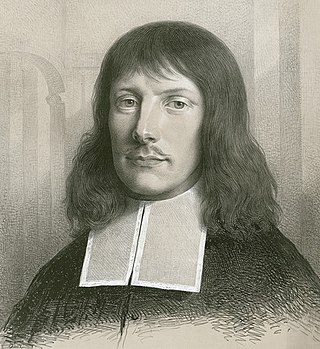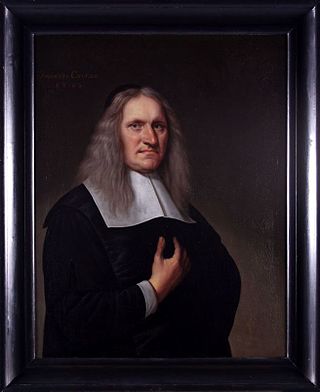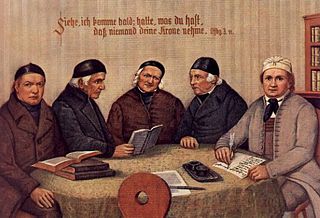This article includes a list of references, related reading, or external links, but its sources remain unclear because it lacks inline citations .(November 2017) |
Theodor Undereyck (born 15 June 1635 in Duisburg, died 1 January 1693 in Bremen) was a Protestant pastor, spiritual writer and pioneer of pietism in the German Reformed Church.
Contents
Theodor Undereyck was born in 1635, the son of businessman Gerhard Undereyck and his wife Sara, née Salanger. After the death of his parents in 1636 by the plague, he grew up as an orphan in the house of his uncle Johann Undereyck in Alstaden.
From 1653 to 1658 he studied Protestant theology in Duisburg, Utrecht, and Leiden, under, among others, Gisbert Voetius and Johannes Cocceius. His teachers were partly contrary to one another, but were orthodox Reformed theologians and representatives of continuing reformation. In particular Cocceius strongly influenced him in the direction of a federally theological thought, so that he was also considered one of the major catechists of Coccejanism. Voetius influenced him in the direction of a puritanical way of life and its emphasis on the importance of Christian conventicles. From 1658 to 1659 Undereyck undertook a study trip to Switzerland, France, and England.
In 1660, he became pastor of the Reformed church in Mülheim an der Ruhr. There in about 1661 he led one of the first Pietist conventicles in Germany. From 1668 he was an associate court preacher in Kassel to Landgravine Hedwig Sophie (1623–1683). In 1670 he became pastor at St. Martin's Church in Bremen and remained so until his death. Despite initial difficulties with the clergy, his ministry helped the breakthrough of Pietism. His followers Joachim Neander and Cornelius de Hare (whose funeral sermon provides biographical information on Undereyck) translated and continued Undereyck's work.
Undereyck published 5 books, including two catechisms and a lay dogmatics, in which he conveyed the ideas of the English and Dutch Reformed theology to German-speaking readers in edifying language. He dedicated his most extensive and sophisticated writing to the fight against emerging atheism in Age of Enlightenment.











